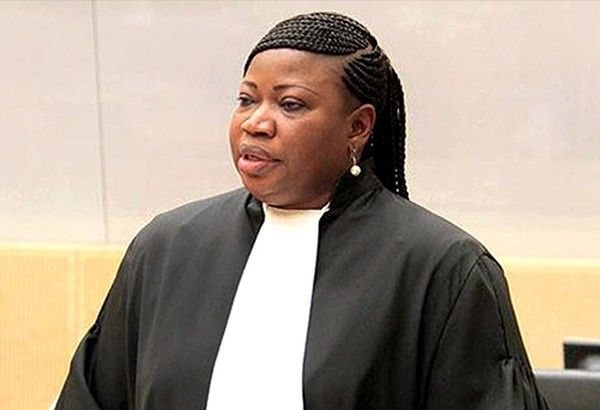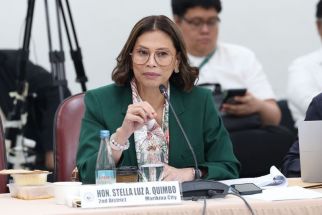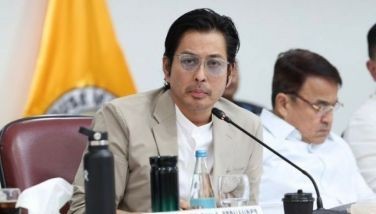International Criminal Court warns Philippine government on drug deaths

MANILA, Philippines - The chief prosecutor of the International Criminal Court (ICC) has expressed alarm over reports of rising extrajudicial killings in the Philippines as she warned officials of possible prosecution for apparently condoning or even encouraging the bloody campaign against illegal drugs and criminality.
“Let me be clear: any person in the Philippines who incites or engages in acts of mass violence including by ordering, requesting, encouraging or contributing, in any other manner, to the commission of crimes within the jurisdiction of the ICC is potentially liable to prosecution before the court,” ICC chief prosecutor Fatou Bensouda said in a statement.
“I am deeply concerned about these alleged killings and the fact that public statements of high officials of the Republic of the Philippines seem to condone such killings and further seem to encourage state forces and civilians alike to continue targeting these individuals with lethal force,” she added.
Bensouda’s statement appeared aimed as a blunt warning to President Duterte, whose anti-drug crackdown has left an estimated 3,000 people allegedly involved in the drug trade dead.
The Philippines is a member-state of the ICC, the world’s first global court prosecuting war crimes and crimes against humanity. This means crimes committed in the country could be prosecuted at the Hague-based institution.
Extrajudicial killings may fall under the jurisdiction of the ICC if they are committed as part of a widespread or systematic attack against a civilian population in pursuit of a state policy.
She said her office, in accordance with its mandate under the Rome Statute, “will be closely following developments in the Philippines in the weeks to come and record any instance of incitement or resort to violence with a view to assessing whether a preliminary examination into the situation of the Philippines needs to be opened.”
The Office of the Prosecutor of the ICC is conducting investigations in Uganda; the Democratic Republic of the Congo; Darfur, Sudan; the Central African Republic; Kenya; Libya; Côte d’Ivoire; Mali and Georgia.
Last Thursday, Duterte exuded confidence in a speech that he could easily parry any criminal investigation into the killings. He said he has written letters to invite President Barack Obama, Secretary of State John Kerry, UN and European Union officials to visit the Philippines to investigate him, but warned he would publicly humiliate them by disproving their allegations.
As a former trial lawyer for eight years, “they cannot be brighter than me, believe me,” saying that after he is investigated, he should be allowed to grill his inquisitors.
“I will play with you in public. I will ask five questions that will humiliate you. And I will ask 10 questions for you to agree with me,” Duterte said in a speech at a business conference. “It would be a spectacle. You better watch it all ... It will give you entertainment.”
He said EU lawyers alleging he may be criminally liable for threatening criminals with death are “idiots.” He has said that there’s no Philippine law barring presidents from doing that.
Human rights advocates, however, say Duterte swore during his inauguration in June to ensure the execution of Philippine laws, some of which prohibit serious threats, especially death, toward people. The Constitution also prohibits any cruel and inhumane punishments, including the death penalty.
Since becoming president in June, Duterte has drawn widespread criticism for his deadly war on drugs.
Last week, White House spokesman Josh Earnest said the US remains “deeply concerned by reports of widespread extrajudicial killings by or at the behest of government authorities in the Philippines. The use of that kind of tactic is entirely inconsistent with universal human rights and the shared values of our two countries.”
The ICC said its mandate is to investigate and, where warranted, try individuals charged with the gravest crimes of concern to the international community: genocide, war crimes and crimes against humanity.
- Latest
- Trending





























